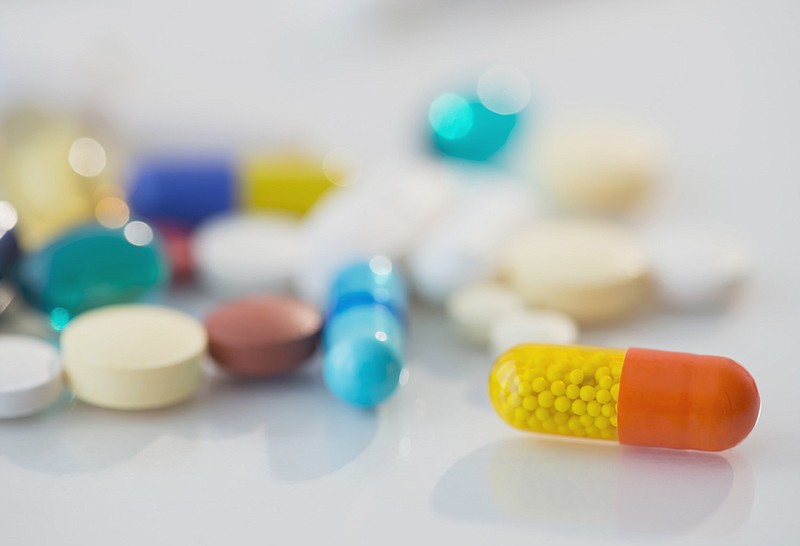Recently, two pieces of medical news grabbed our attention; both had to do with the importance of taking your meds as prescribed. The first was a study in BMJ Open. It found that 30 percent of folks who'd had an earlier stroke were not following their doctor's prescription for a schedule of statins, most often because of concerns about the drug's side effects. That's risky because 75 percent of people who have had a stroke have clogged arteries (statins help ease the danger associated with that), and there's a 20 percent chance they will have another stroke in the next five years. But taking a statin can cut the risk of stroke by 16 percent and reduce major coronary events by 35 percent.
The second was an opinion piece published in BMJ that questioned the "rule"-around since 1945-that you should take a full course of antibiotics even if your symptoms go away before the end of treatment. The authors say there is no proof that weaker bacteria are killed off first, and if treatment were ended before the stronger, remaining bacteria had been vanquished, that those brutes would rebound with a vengeance and fuel antibiotic resistance.
Well, we know for sure that it is never smart to stop taking statins without talking to your doc, whether you've had a stroke or heart attack, or have elevated lousy LDL cholesterol, and that the verdict is not yet in on when or how it might make sense to stop antibiotics before the full course is completed.
But the issue of when and how to stop a med isn't limited to those two drugs. Many life-saving medications can trigger rebounds if you stop them, and that can lead to serious health risks, and even death.
OPIOIDS
If you've been taking oxycodone or hydrocodone for post-surgical pain relief for even a few weeks, stopping cold turkey can trigger withdrawal symptoms such as muscle aches, restlessness, anxiety and gastrointestinal distress. The key to successfully stopping pain pills is to consult with a pain-management specialist who can help you titrate the dose until you are easily able to get off them. For addiction to illegal opioids such as heroin, withdrawal is very tough, and you need to see an addiction specialist or group that has all the tools, medically and psychologically, to support you as you wean off them.
BLOOD PRESSURE MEDS
Stopping them abruptly may result in rebound high blood pressure, which can trigger heart attack, stroke and even sudden death. If you don't like the way your med is making you feel, talk to your doc. There are scores of medications for hypertension. You will find one that suits you and protects your heart.
CORTICOSTEROIDS
This class of medication suppresses your immune system and reduces inflammation; it's used to treat psoriasis, rheumatoid arthritis, ulcerative colitis, other autoimmune diseases, chronic pain and atopic dermatitis.
If you've taken a corticosteroid, such as prednisone, for more than two to three weeks, suddenly going off these meds frequently leads to severe fatigue, weakness, body aches, joint pain, nausea, loss of appetite and lightheadedness.
ANTIDEPRESSANTS
Abruptly stopping some selective serotonin reuptake inhibitor (SSRI) antidepressants like Paxil (paroxetine) or Zoloft (sertraline) can lead to anxiety, panic, dizziness, fatigue, upset stomach, worsened depression, nightmares and confusion insomnia. Also, abruptly stopping benzodiazepines-alprazolam (Xanax), lorazepam (Ativan), diazepam (Valium) and clonazepam (Klonopin), used to ease anxiety and seizures-can cause rebound seizures 24 to 72 hours after you stop.
Whether you are simply tired of taking a med or worried about side effects, never stop without talking to your doc. In some cases, side effects are transient and easily managed, while in other situations there are alternative treatments you can switch to. And sometimes you need to find out how to-safely-transition from taking a drug to stopping it altogether. It is not something to do on your own.

